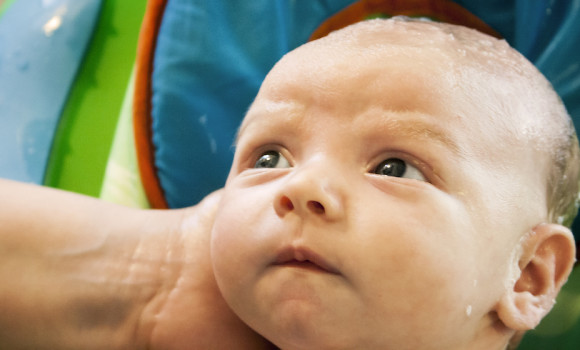So you’re out of the hospital- no matter how seamless your birth, finally getting discharged with your baby can feel like escape from nightmare island. It’s no doubt a huge relief to be back to your own relatively dim, peaceful and familiar home- savor the moment you walk in the door, reuniting with siblings, pets, neighbors, houseplants and your own clothes.
So, now what do you do? Here’s 10 things to do -or better yet, delegate to your partner, family and friends- on your first day back home:
Find somewhere to store all those free diapers, formula samples and maxi pads.
Set up your diapering/clothes changing area: open packages of wipes and diapers and put them next to the changing pad, put a cover on the changing pad, make sure the pad is secured to the surface (or, use a towel on the floor or bed). Put out a clean diaper and outfit for the next change, and a dark-colored towel or washcloth for any surprises.
When it comes to maxi pads, note you may be bleeding for as long as six weeks after birth. Don’t douche or use tampons until your health care provider says it’s ok. Don’t bathe, only shower, if you have dissolving stitches. Reread your postpartum care instructions at home. If you were sent home with pain medication, figure out when your next dose is due.
Call your OB, midwife or family doctor to make an appointment for your six-week postpartum checkup and to ask any questions you have about medications, nursing, symptoms or aftercare.
Set up your nursing area: a chair or couch space with foot and arm support and pillows, and some water for you. If you’re breastfeeding that’ll be your primary activity- you can expect to spend about 30-45 minutes eight to 10 times a day getting your milk established. Alternatively, gather your formula-feeding supplies. When it comes to feeding and holding the baby, going to the bathroom, eating and personal hygiene will all take second priority.
Speaking of eating, figure out what to do about meals. We hope you have some helpers who are game to deal with buying, preparing and cleaning up food. If not, we hope you have a lot of delivery menus and trash bags. Ask for food you can eat one-handed and snack on throughout the day- fruit, wrap sandwiches, nuts, cereal. (Article TK)
Contact your baby’s pediatrician to let him/her know the baby’s been born and to make an appointment for a checkup.
Contact your health insurance provider, if you haven’t already, to add baby to your plan and give them baby’s social security number.
Put your copies of the baby’s birth certificate, footprints, social security information and hospital discharge papers somewhere safe.
Order (and/or post online) birth announcements.
Finalize your baby’s sleeping arrangements: will s/he be in a bassinet or co-sleeper by your bed, or sharing a bed, or in a crib in her own room? If s/he’s in a crib, make sure it’s clear of bumpers, comforters, blankets, sleeping positioners and other fluffy items that can trap CO2. Consider using a a fan in baby’s room. For more on sleep options and safety see this article.
And finally, a bonus- we know you’re completely wiped out, but try to keep a journal, even if it’s just a few lines a day, or feeding and diaper changes. These days and nights may seem to last forever, but mere months from now they’ll all be a total blur, but someday your child all ask a lot of questions about what his/her first days were like!



Leave a Comment